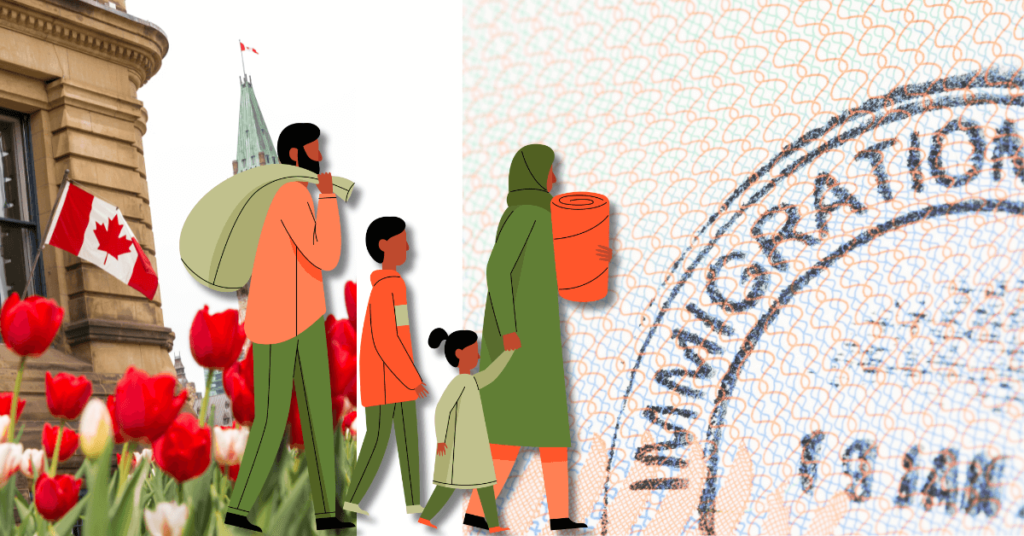Ottawa Immigration Program – What is the big change?
The Canadian government recently decided to delay the implementation of a program designed to allow migrants without papers to stay in the country. This decision has brought to light the ongoing discussions and debates surrounding immigration policies in Canada. The proposed program aimed to offer undocumented migrants a legal pathway to residency, acknowledging their significant contributions to Canadian society and the economy.
The delay in the Ottawa immigration program reflects the complexities of immigration reform in Canada. While there is considerable support for integrating undocumented migrants, concerns about the potential impact on immigration control and establishing new precedents persist.
This situation underscores the broader challenges within Canada’s immigration policy landscape, highlighting the need to balance various interests and concerns. Addressing these complexities requires careful consideration of both the benefits and potential drawbacks of such policies, ensuring that they are effective and sustainable in the long term.
Impact of Delayed Immigration Policy
The postponement of the Ottawa immigration program has far-reaching implications for both migrants and Canadian society. For undocumented migrants, this delay prolongs their uncertainty and limits access to essential services such as healthcare and education. These individuals remain in a vulnerable position, unable to fully integrate or secure stable employment due to their lack of legal status. This situation exacerbates their hardships and makes it challenging to contribute effectively to society.
For Canadian society, the delay raises critical questions about the efficacy of current immigration policies in meeting the needs of all residents. It highlights the broader issue of how the country manages undocumented migrants and ensures that its immigration policies are inclusive and fair. There is a growing debate about whether current policies adequately address the complexities of undocumented migration and if they align with Canada’s humanitarian values.
Enhanced support programs for immigrants are crucial for successful integration into Canadian society. These programs, including language training and job placement services, provide the necessary tools for immigrants to thrive. Stricter selection criteria aimed at skilled workers help meet labor market demands, ensuring that the economy benefits from immigration. However, comprehensive policies must also address the challenges faced by undocumented migrants.
The Ottawa immigration program, once implemented, could play a significant role in providing a pathway to legal status for undocumented migrants. This would enable them to access support programs and integrate more effectively. By addressing the needs of undocumented migrants, the program could help mitigate the risks associated with their precarious status and promote social cohesion. It is essential for policies to balance the need for skilled labor with the humanitarian obligation to support all migrants, regardless of their documentation status.
Challenges Faced by Undocumented Migrants in Canada

Undocumented migrants in Canada face numerous challenges, including limited access to basic services, exploitative working conditions, and social exclusion. These challenges are exacerbated by the lack of legal status, which restricts their ability to seek better opportunities and live securely.
Addressing these challenges requires a holistic approach to immigration policy that considers the human rights and contributions of undocumented migrants. Providing legal pathways and support can help mitigate these issues and promote a more inclusive society.
Public Opinion on Immigration Policies
Public opinion on immigration policies in Canada is divided. While many Canadians recognize the economic and cultural benefits of immigration, there are concerns about the impact on job opportunities and social cohesion. Recent surveys indicate a growing demand for more stringent immigration controls and better integration policies.
Understanding and addressing these concerns is crucial for the development of effective immigration policies. Transparent communication about the benefits of immigration and the measures in place to address potential challenges can help build public support.
Economic Considerations and Workforce Needs
Canada’s economy relies heavily on immigration to fill labor market gaps and support various industries. The delay in implementing the program for undocumented migrants could impact sectors that depend on this workforce. Addressing the needs of the labor market while ensuring fair and humane treatment of migrants is a key challenge.
Balancing economic needs with social policies requires a nuanced approach. Policymakers must consider how to integrate undocumented migrants into the workforce in ways that benefit both the economy and the individuals involved. This includes providing legal status and access to job training and educational opportunities.
Legal and Humanitarian Perspectives
From a legal and humanitarian standpoint, the delay in the immigration program raises significant questions. Ensuring that undocumented migrants are treated fairly and humanely is a core concern. Legal pathways to residency can provide stability and security for these individuals, allowing them to contribute more fully to Canadian society.
Humanitarian considerations include the protection of migrants’ rights and the provision of essential services. By addressing these legal and humanitarian issues, Canada can uphold its values of inclusivity and justice, ensuring that all residents, regardless of their immigration status, are treated with dignity and respect.
By focusing on these diverse aspects, Canada can develop more comprehensive and effective immigration policies that support both the economy and the social fabric of the nation.


